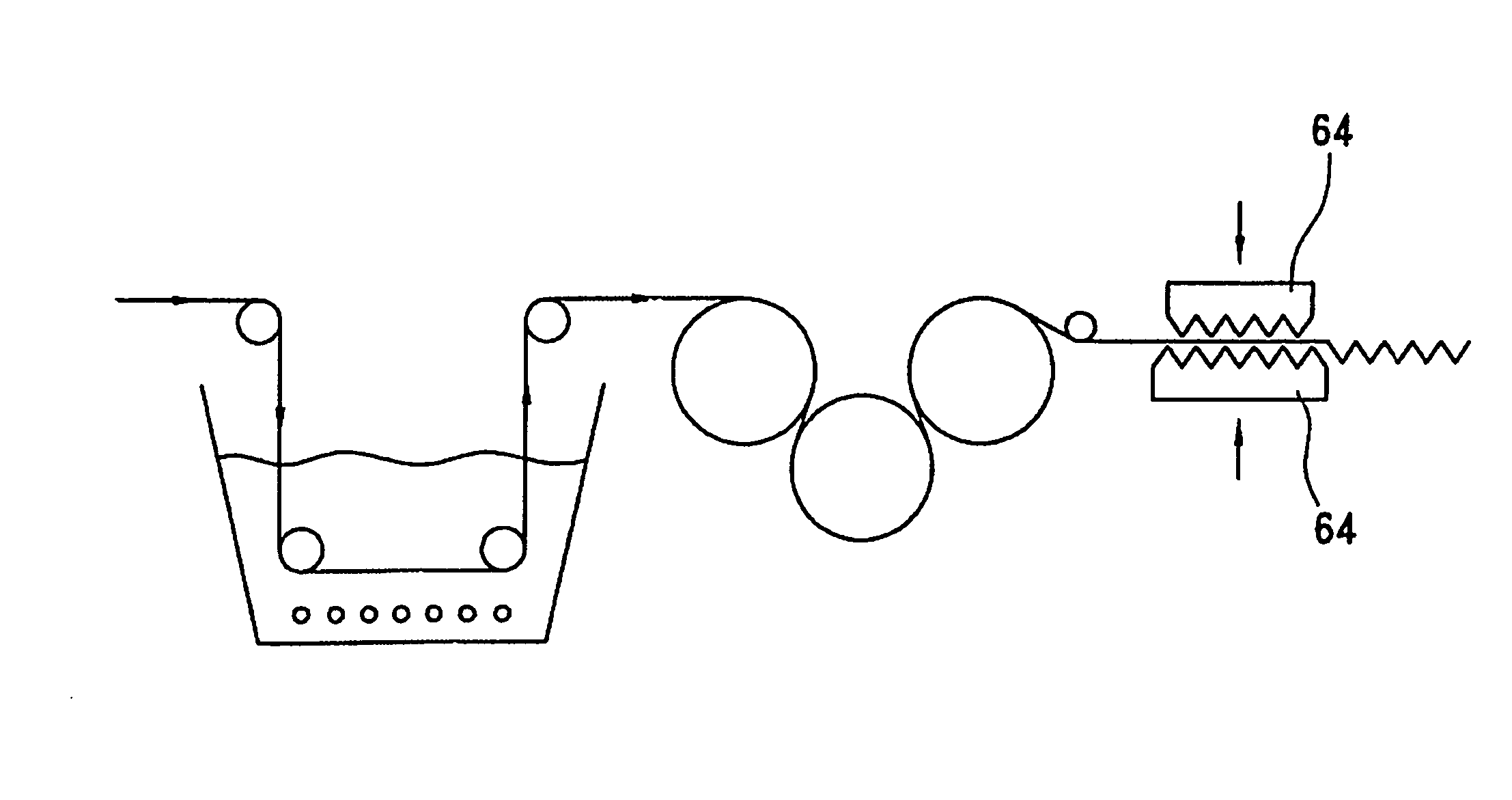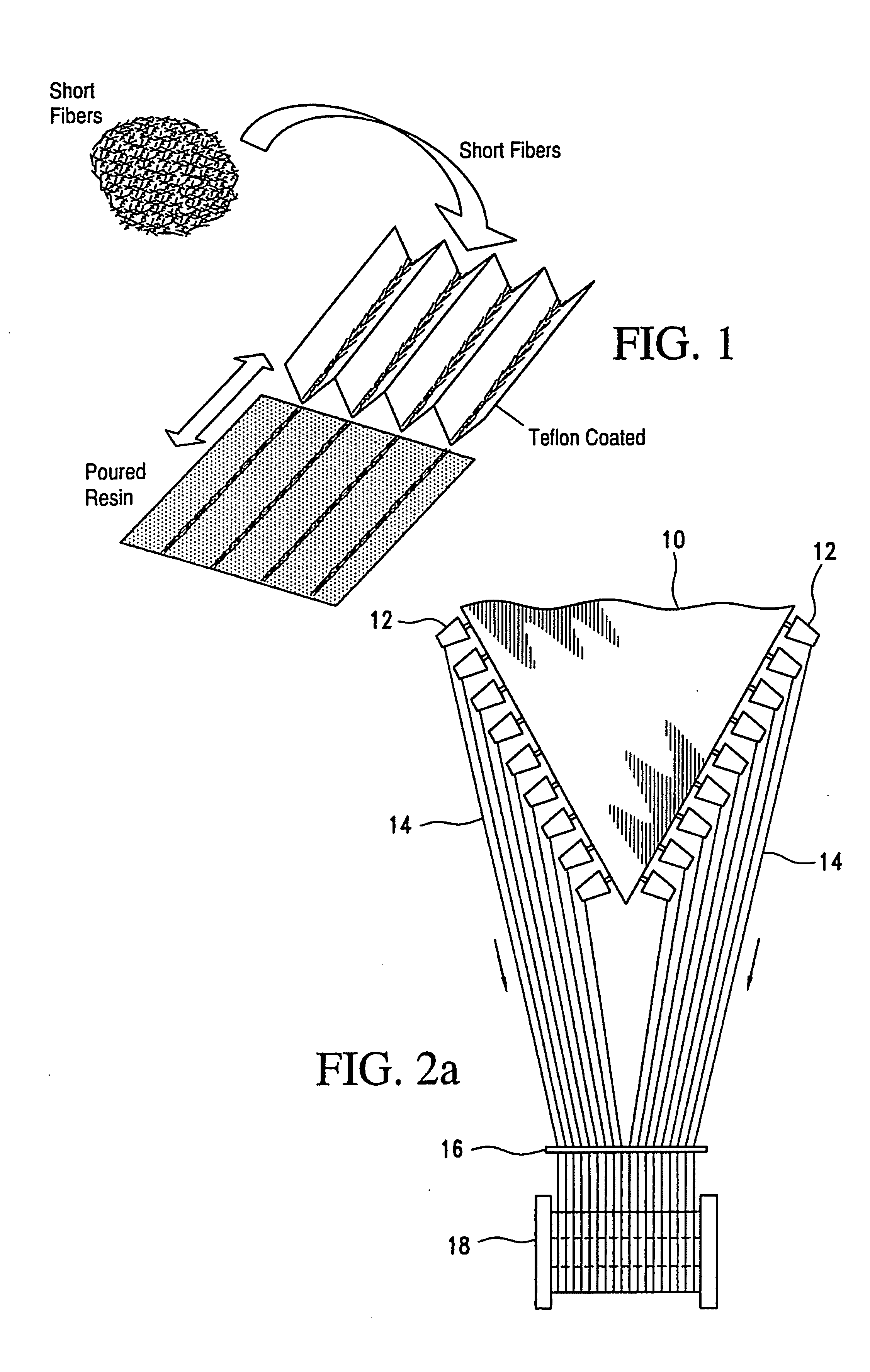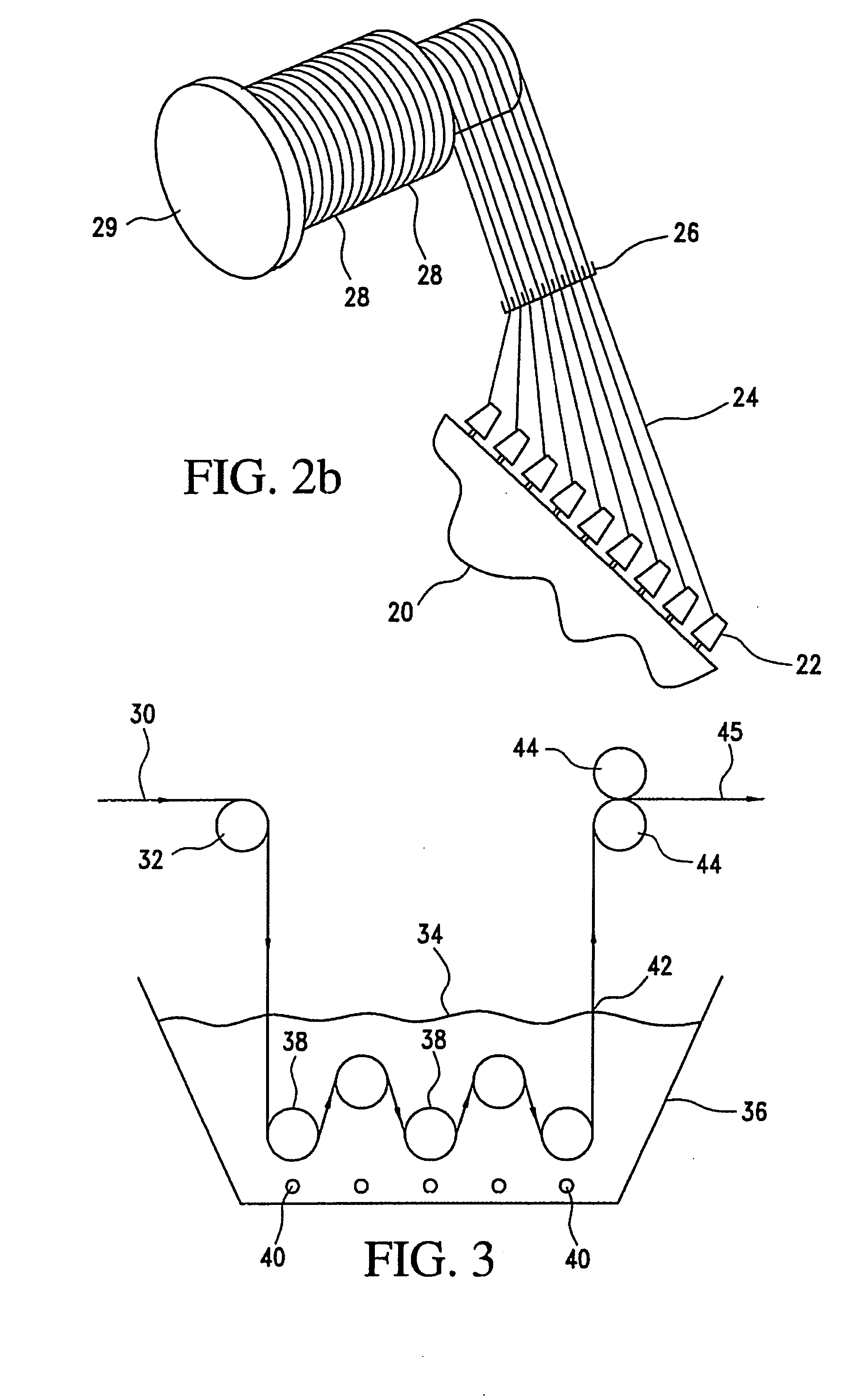Cured soy protein with green strengthening additive and fabrication of such into green composite
- Summary
- Abstract
- Description
- Claims
- Application Information
AI Technical Summary
Benefits of technology
Problems solved by technology
Method used
Image
Examples
fabrication example 1
Randomly Oriented Short Fibers
[0095] Short cellulose fibers are blended into the admixture of SPC suspension (containing glycerol) and agar solution, admixture of Biodegradable Composition Preparation Example 5 (to provide 10% glycerol by weight of SPC and 50% agar by weight of SPC) in an amount of 30% fibers by weight of SPC, to provide uniform distribution of randomly oriented fibers. Precuring is then carried out by mixing to maintain uniform distribution and random orientation while maintaining the composition in a water bath at 90° C. for thirty minutes. The precured admixture is then dried at 35° C. for twenty-four hours so as to maintain the uniform distribution and random orientation of the fibers. The precured blend is poured onto a non-stick surface to form sheets and the sheets are dried at 35° C. for twenty-four hours and then cured by hot pressing at 8 MPa at 1 20° C. for twenty-five minutes.
[0096] In another case, a plurality of dried sheets are stacked and the stack...
fabrication example 2
Unidirectional Short Fibers
[0097] The method of this example is shown in FIG. 1.
[0098] As shown in FIG. 1, short fibers are dispensed onto pleats of a pleated Teflon® coated cardboard or plastic or metal sheet material substrate plate to form rows of aligned unidirectional short fibers, with one row in each pleat. The fibers in each pleat are fed as rows of unidirectional fibers on a sheet of resin mixture of SPC suspension in water (10% glycerol by weight of SPC) and agar solution in water (to provide 50% agar by weight of SPC). The sheet of resin with rows of unidirectional fibers thereon / therein is precured at 90° C. for thirty minutes, then dried at 35° C. for twenty-four hours, then cured by hot pressing at 8 MPa and 120° C. for twenty-five minutes.
fabrication example 3
Impregnated Parallel Arrays of Yarn
[0099] Parallel arrays of yarns constituted of flax material or other green yarns or filaments or individual sections of such parallel arrays are impregnated with biodegradable composition of the invention hereto.
[0100]FIG. 2a depicts warping procedure for preparing a single parallel array.
[0101] As shown in FIG. 2a, apparatus and process for preparing a single array comprise, a creel 10 supporting individual yarn packages or bobbins 12 for feeding yarns 14 over a guide 16 to a warping beam 18 where the yarns are then collected in parallel array.
[0102] As shown in FIG. 2b, apparatus and process for preparing sections of parallel array yarns comprise a creel 20 supporting individual yarn packages 22, feeding yarns 24, over a comb 26 to form sections of parallel array yarns 28 on sectional beam 30.
[0103] The impregnation herein is carried out on the parallel yarn arrays downstream of the guide 16 or comb 26 and upstream of beams 18 and 29.
[0104...
PUM
| Property | Measurement | Unit |
|---|---|---|
| Fraction | aaaaa | aaaaa |
| Fraction | aaaaa | aaaaa |
| Percent by mass | aaaaa | aaaaa |
Abstract
Description
Claims
Application Information
 Login to View More
Login to View More - R&D
- Intellectual Property
- Life Sciences
- Materials
- Tech Scout
- Unparalleled Data Quality
- Higher Quality Content
- 60% Fewer Hallucinations
Browse by: Latest US Patents, China's latest patents, Technical Efficacy Thesaurus, Application Domain, Technology Topic, Popular Technical Reports.
© 2025 PatSnap. All rights reserved.Legal|Privacy policy|Modern Slavery Act Transparency Statement|Sitemap|About US| Contact US: help@patsnap.com



